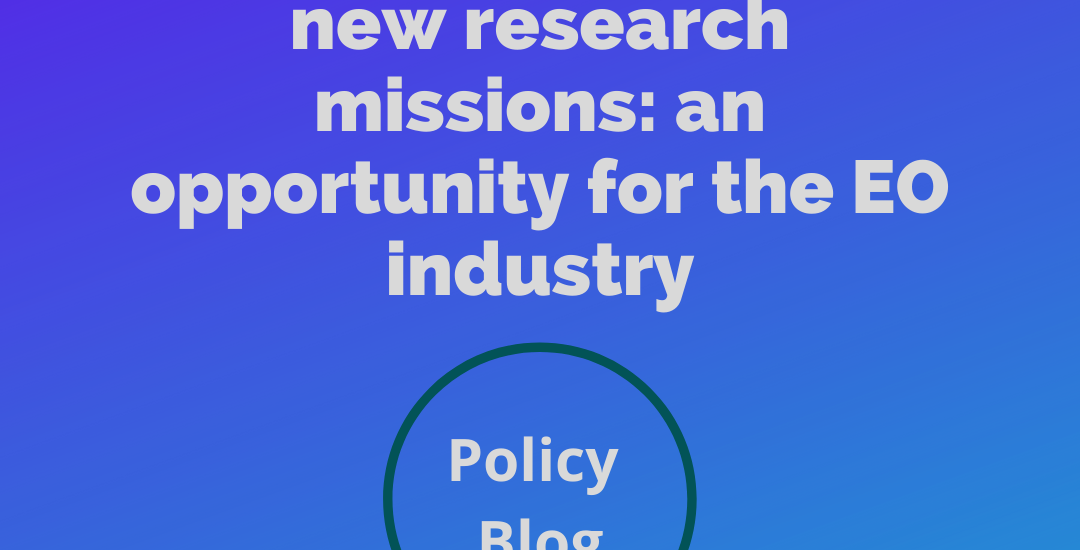Horizon Europe and the new research missions: an opportunity for the EO industry
- July 28, 2020
- Posted by: EARSC
- Category: Blogs

On the 25th of June 2020, the European Commission introduced the five planned research missions that are part of the next EU Research &Development programme Horizon Europe. The new programme will build upon the success of the Horizon 2020 programme and the missions are seen as big visionary actions to motivate and engage the public[1], tackling important challenges such as climate change, cancer, adapting cities to global warming, protecting oceans and soils.
Horizon Europe (HE) has a number of goals relevant for the industry:
- deliver on global challenges and industrial modernisation through research and innovation.
- support European partnerships with EU countries, private actors, foundations and other stakeholders.
- The principle of “open science” will become the modus operandi of “Horizon Europe”, making open access to publications and data indispensable. This will promote market penetration and increase the innovative potential of the results obtained with EU funding.
- The new programme also establishes a European Innovation Council (EIC) to help the EU become a forerunner in market-creating innovation.
- Additionally, the Commission will create a one-stop shop that will transform the most promising and high-potential technologies into businesses and help the most innovative start-ups and companies to grow their ideas.
The five research missions set ambitious goals for industrial competitiveness and are aligned with the European Green Deal Strategy and the Biodiversity Strategy by 2030. They will help specify, design and implement specific missions in Horizon Europe.
The five missions are the following:
- conquering cancer (research programmes to improve and optimize existing screening methods and develop new early detection systems),
- soil mission (the goal is to ensure that 75% of soils are healthy by 2030 and able to provide essential ecosystem services),
- climate-resilient neighbourhoods (acceleration of the transition to a resilient Europe),
- 100 carbon-neutral cities (support of 100 European cities in their transformation towards climate neutrality by 2030)
- protecting and restoring oceans (towards a full recovery and regeneration of European seas and degraded marine habitats by 2030).
The mission boards (each mission will have a dedicated mission board and assembly comprising 15 experts and a chair) produced an interim report proposing concrete targets and timelines for possible missions. They will provide their final recommendations to the commission in September. The missions are expected to be launched in 2021.
It is important to highlight the fact that the industry will have an important role to play in the Horizon Europe programme. According to our view, EO services will contribute to the 5 missions. Consequently, we shall follow the evolution of the missions and keep you informed of future opportunities!
[1] Former EU Research Commissioner Carlos Moedas described missions as “something that will make people on the street talk about science.”
